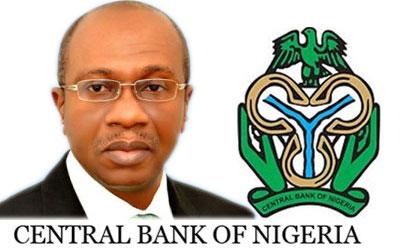
CBN sold about $1 billion on the forward market last week to clear a backlog of dollar obligations in selected sectors, traders said on Thursday, its largest special auction since a currency peg was removed in June.
Outstanding dollar demand was about $4 billion before June, when the 16-month-old peg was removed. Efforts to cut dollar demand have been largely unsuccessful due to low oil prices.
Crude sales account for about 90 percent of Nigeria’s foreign exchange earnings.
Traders said the central bank told banks to prioritise airlines, manufacturing firms, petroleum products importers and agriculture sectors, the sectors worst hit by the dollar shortage, in the auction.
“The central bank sold $1 billion at last week’s special forex auction and directed banks to issue fresh letters of credit to reflect the amount sold in favour of the affected sectors,” a senior currency trader told Reuters.
Traders said the central bank sold 30-day and 60-day forwards at the auction.
On Dec. 19, the central bank instructed commercial lenders to submit their backlog of dollar demand from fuel importers, airlines, raw materials and machinery for manufacturing firms and agricultural chemicals for the special forex intervention.
Nigeria is in its first recession for 25 years, caused by the oil price drop which has cut the supply of dollars needed to fund imports. Attacks by militants on pipelines in the Niger Delta since January have cut crude output, further reducing dollar inflows.
The dollar shortage in the OPEC member, whose crude sales make up two thirds of government revenue, has caused many companies to halt operations and lay off workers, compounding the economic crisis.
Some foreign airlines have closed down or reduced their operations over an inability to repatriate the proceeds of their earnings due to the dollar shortage.
An acute shortage of jet oil in the last few months – caused by the inability of importers to secure the dollars needed to buy the fuel – has led to many operators refuelling in neighbouring countries.
Flight cancellations by local airlines have become commonplace as a result of the shortages.
The naira was trading at about 305.25 to the dollar on the interbank market on Thursday and was quoted at 490 a dollar on the unofficial market.









